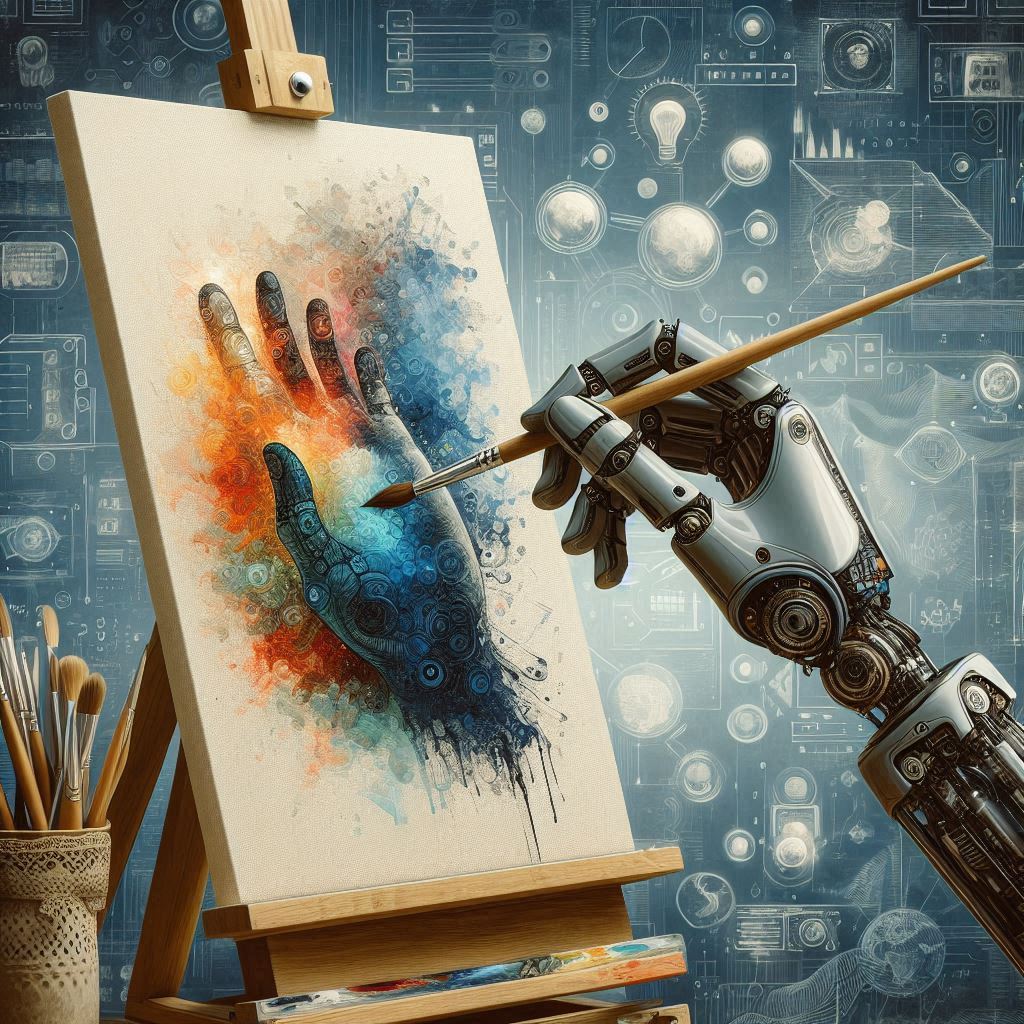The world of art is no stranger to evolution. From cave paintings to the Renaissance, and now, the age of AI, artistic expression continually finds new forms. AI art, generated by artificial intelligence, is rapidly gaining popularity, but its place within established platforms like Fine Art America raises questions. Can you sell AI-generated art prints on Fine Art America? Let’s delve into the intricacies of this burgeoning frontier.
Table of Contents
- I. Introduction
- II. Understanding Fine Art America’s Policies
- III. Navigating Copyright and Ownership Issues
- IV. Transparency and Disclosure
- V. The Future of AI Art on Fine Art America and Beyond
- VI. FAQ Section
- VII. Conclusion
I. Introduction
The accessibility and creative potential of AI art generators have sparked a surge in AI-generated artwork. Artists and enthusiasts alike are exploring this new medium, leading to a growing market for “fine art america ai art” and “selling ai art” online. Fine Art America, a prominent platform for selling prints, finds itself at the crossroads of this technological shift.
II. Understanding Fine Art America’s Policies
To answer the question of selling AI art on Fine Art America, we need to examine their policies. While Fine Art America doesn’t explicitly address AI-generated art in their publicly available terms of service, it’s crucial to understand clauses related to:
- Copyright: Fine Art America likely requires users to possess the copyright or have necessary permissions for any images they upload for sale.
- Ownership: Policies might stipulate that uploaded artwork must be original creations of the uploader.
- Image Generation Methods: While not directly addressing AI, there might be rules against automated content uploads, often used to prevent spam or copyright infringement.
The increasing use of sophisticated bot detection mechanisms online is evident even on unrelated websites. This suggests that Fine Art America might employ similar systems to prevent unauthorized automated activity, potentially impacting how AI art can be uploaded and sold.
III. Navigating Copyright and Ownership Issues
Copyright law concerning AI art remains a complex and evolving landscape. A central question arises: who owns the copyright to AI-generated images? Is it the AI developer, the user providing the prompts, or is it considered public domain?
Currently, the US Copyright Office doesn’t grant copyright protection to AI-generated works. However, the specific software license agreement for the AI art generator used might influence ownership. Artists selling AI art without clear ownership risk potential legal ramifications.
IV. Transparency and Disclosure
Regardless of the platform, transparency is paramount when selling AI art. Clearly and explicitly disclose to potential buyers that the artwork is AI-generated.
This transparency offers several benefits:
- Builds Trust: Open communication fosters trust with buyers.
- Informed Decisions: Allows buyers to make informed purchases based on their preferences.
- Ethical Practices: Transparency promotes ethical behavior within the AI art community.
V. The Future of AI Art on Fine Art America and Beyond
As AI art gains traction, platforms like Fine Art America might adapt their policies to address this new creative landscape. We could see:
- Specific Guidelines for AI Art: Clearer rules about copyright, ownership, and acceptable AI art generation methods.
- Separate Categories for AI Art: Distinguishing AI-generated art prints from traditionally created works.
- Evolving Copyright Laws: Legal frameworks might adapt to clarify copyright ownership of AI-generated content.
The future of AI art depends on the ongoing dialogue between artists, developers, platforms, and legal entities.
VI. FAQ Section
- Q: If I encounter a bot detection page while using a website, does this mean they prohibit AI art?
- A: Not necessarily. Bot detection mechanisms are used to prevent malicious activity, and while they might impact AI art uploads, it’s not a direct indication of a ban. Always refer to the platform’s terms of service for specific information about AI-generated content.
- Q: If I create AI art using specific software, do I own the copyright?
- A: Copyright law around AI art is still under development. While the US Copyright Office currently doesn’t grant copyright to AI-generated works, the ownership might depend on the software license agreement. Review the terms of use for the AI art generator you’re using.
- Q: Are there advantages to being transparent about selling AI art?
- A: Yes, transparency builds trust with your audience. Some buyers might specifically be interested in AI art, while others might appreciate the honesty. Openness about your creative process can lead to more informed decisions.
VII. Conclusion
The world of AI art is exciting and full of potential, but navigating its presence on platforms like Fine Art America requires careful consideration of evolving policies, copyright complexities, and ethical disclosure practices. As the field progresses, staying informed and engaged in these conversations will be crucial for both artists and buyers.

